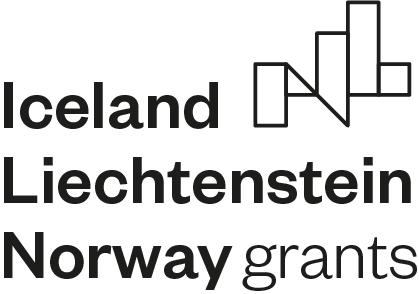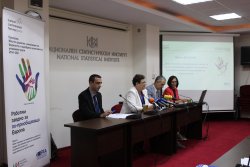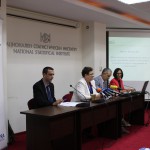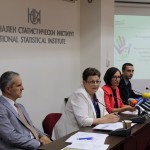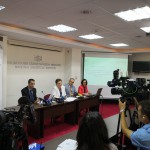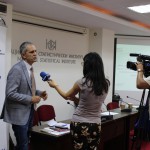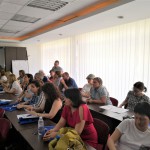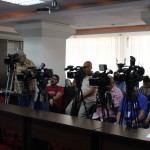NSI is developing new approaches to generate data on vulnerable groups
Field survey conducted next year will cover 15,000 households
The National Statistics Institute (NSI) and the European Union Agency for Fundamental Rights (FRA) will develop innovative methods for data collection and will provide indicators on vulnerable groups. The two institutions start work on a project “Novel Approaches to Generating Data on hard-to-reach populations at risk of violation of their rights” funded by the European Economic Area Financial Mechanism, as presented at a press conference today, 2 August.
“Project goal is to find approaches for reaching more comprehensive picture on vulnerable groups. The more detailed information available the more stable the basis on which the executive, legislative and local governments could use to develop more effective policies for these population groups“ told Mrs. Diana Yancheva, Deputy President of NSI.
The statistical team is involved in several consecutive tasks. The experts will conduct a study of the existing good practices and methods to identify vulnerable groups of the population by researching, analyzing and consulting stakeholders. They will define the criteria to identify vulnerable groups within the population. By applying them they will be able to identify groups that will be a subject of studying and and thematic areas that need to be covered.
A field survey of 15,000 households will also be conducted, and the analysis of the results will form the basis for thematic publications to promote new methods and approaches.
According to Magdalena Kostova, Director of the Directorate for Demographic and Social Statistics, the idea is that the results obtained from the survey could be matched to the existing dataand the obtained indicators could be used widely for example for operational programs. Andrey Ivanov of the EU Fundamental Rights Agency proved an example with the so-called “Skype children” a group whose parents are living outside Bulgaria and for whom it is unknown how this affects their education, health status, etc.
The project lasts 30 months and is implemented under the programme Local Development, Poverty Reduction and Improved and Enhanced of Vulnerable Groups. The financing of the project activities for two and a half years is 1 945 450 BGN and is provided with the help of the European Economic Area Financial Mechanism 2014-2021 (EEA FM).
